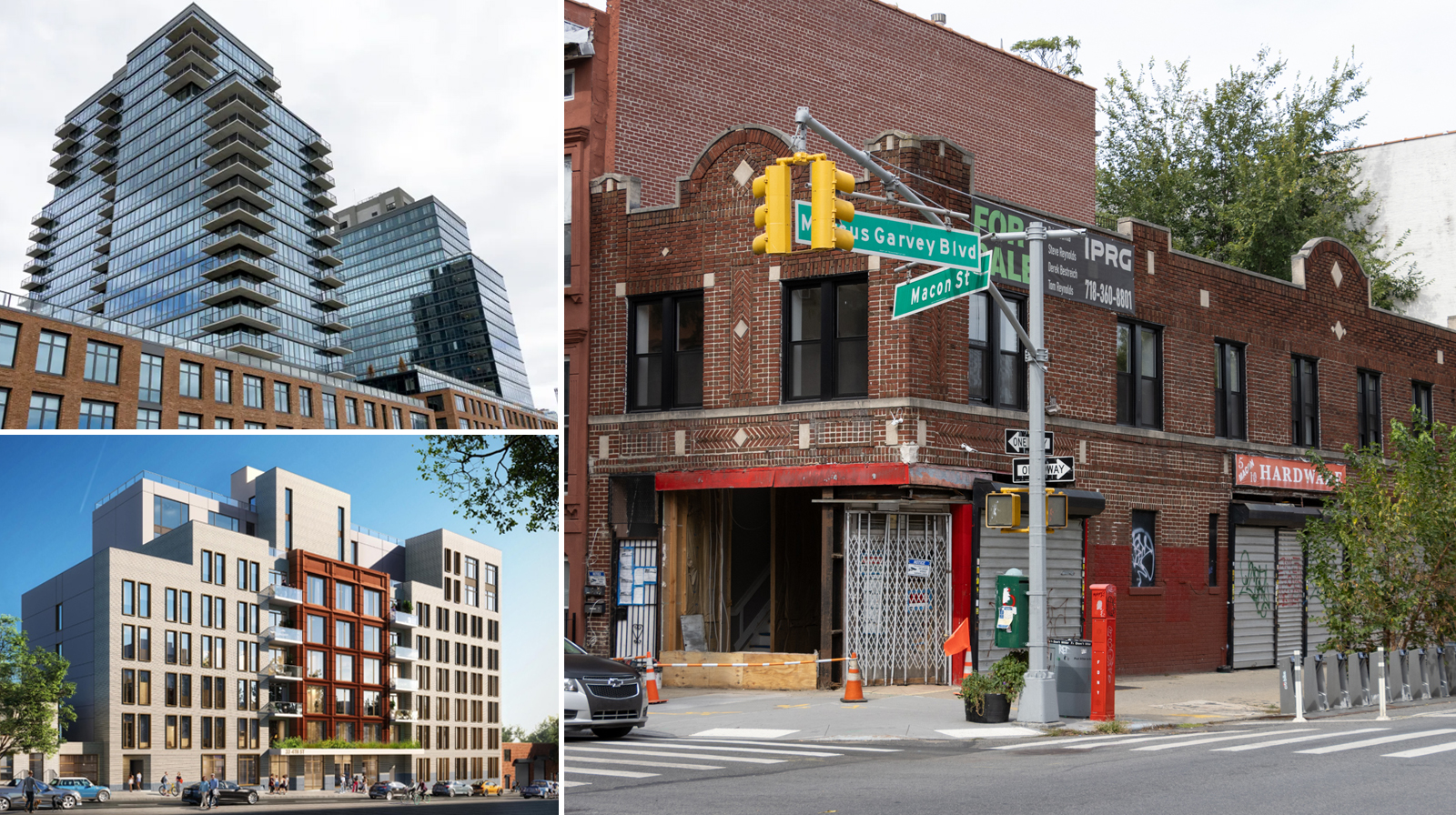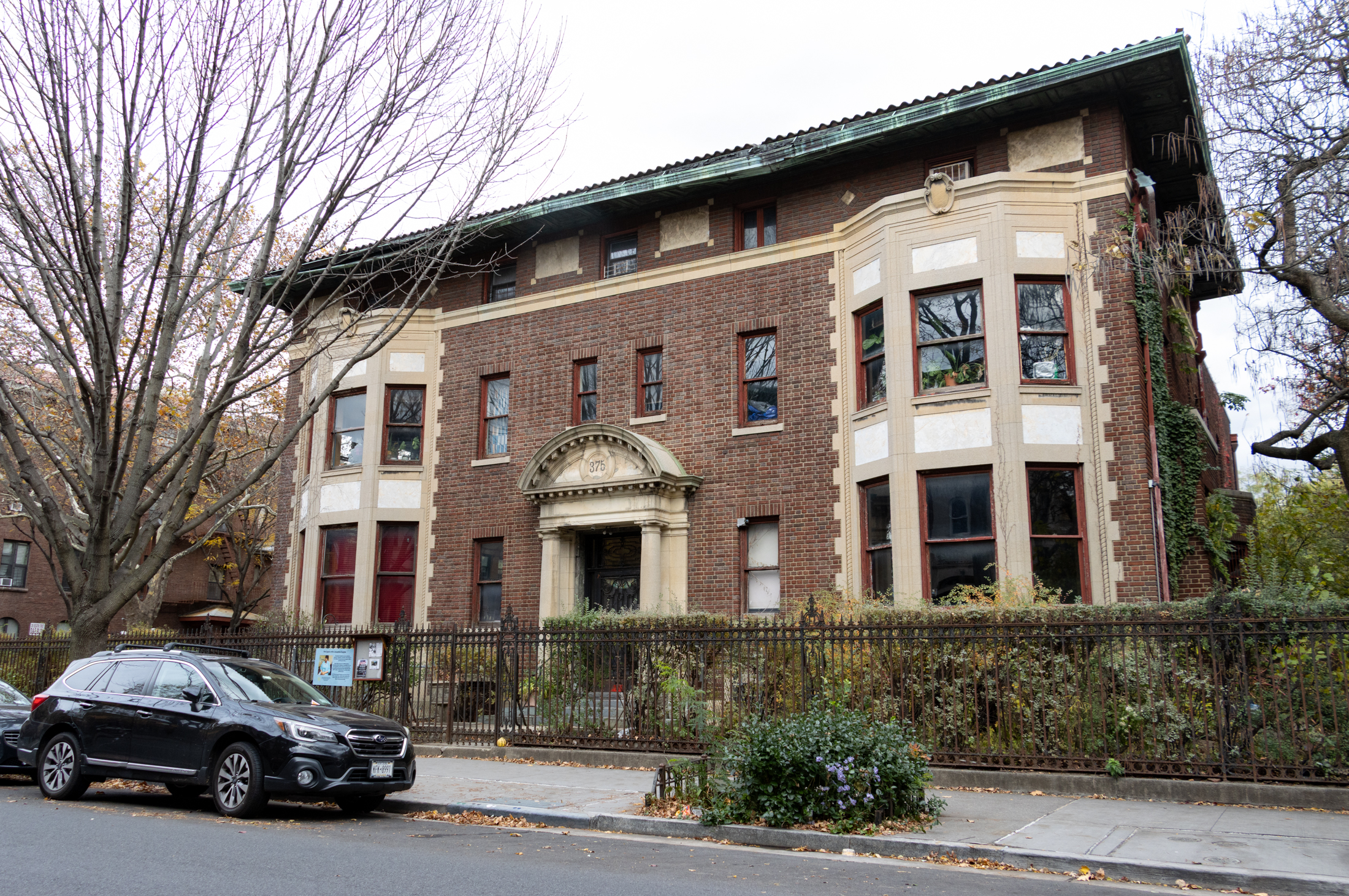Affordable Housing: Promises vs. Reality
The Gotham Gazette published an interesting article this week examining Mayor Bloomberg’s track record in affordable housing. A keystone to the Mayor’s housing plan is inclusionary zoning—granting benefits, such as a 33 percent higher floor to area ratio, to developers who include permanent affordable housing in their plans. Critics say that the plan hasn’t delivered…


The Gotham Gazette published an interesting article this week examining Mayor Bloomberg’s track record in affordable housing. A keystone to the Mayor’s housing plan is inclusionary zoning—granting benefits, such as a 33 percent higher floor to area ratio, to developers who include permanent affordable housing in their plans. Critics say that the plan hasn’t delivered nearly as much affordable housing as promised and supporters say that the plan can work, given enough time. In Greenpoint-Williamsburg, for example, the program has created 768 affordable rentals since 2005, and the goal is 2,200 over the course of a decade. Also, in 2005, the city promised over 6,000 units from already approved projects, but since then only 2,716 have come into existence, mostly in Manhattan, and this figure includes renovations of existing affordable apartments, not just new units. Also, between 2005 and 2008, the city lost 20,000 rent-stabalized apartments to market-rate developments, which tips the mayor’s affordable housing balance into the red. Alternative solutions proposed include mandatory as opposed to optional inclusionary housing, and a new focus on preservation and regulation of existing housing, as opposed to new construction. “The priorities that Bloomberg has put on development of new construction as a solution to affordable housing has been the wrong emphasis,” Mario Mazzoni, the lead organizer at the Metropolitan Council on Housing, told the Gazette. “You cannot build yourself out of the affordable housing crisis in New York City.”
Affordable Housing Not Included [Gotham Gazette]
Affordable housing map, showing completed vs. closed inclusionary housing projects, from The Gotham Gazette





and to add to my above statement, that wont be read cuyz it’s so late, so many people yammer on that the biggest thing they LOVE about living in an urban city is the ‘diversity’. okay, you talk the talk, but you sure as HELL dont walk the walk. so many phonies it’s not even funny.
*rob*
the elephant in the room could be this, for some people, it IS for me… i can afford to live where i live now, BARELY. however, i HATE living around so many wealthy people. i want to live around some people poorer than me as well. i dont WANT to be the poorest person on my block, which, i literally think i am. but then again i do NOT want to move to somewhere that im the RICHEST person on the block,do you understand what im saying? i dont want to live somewhere that everyone has 4000 dollar strollers, nor do i want to live smoewhere that everyone is on welfare and jobless. the problem is that people who think the poor and working class should just SHOO away out of the city want the city to be just one giant wealthy enclave and the poor should be stuck in other sections. F*ck that noise! i wanna giggle watching a stroller mom trip over the curb just as much as i want to see some hobo drunk fall off the curb as well. i want BOTH goddamit, and everything in between!
*rob*
Joe- I disagree with your basic premise. NYC will accommodate as many people as it has to. It has done so in the past and will do so in the future (one hopes). So, I do not agree with your limited space/resource argument. I don’t think we need to decide who gets to live here and who doesn’t. Frankly, that’s not a decision any of us should make for someone else in a free society. Someone could move to NYC from Utah tomorrow and they could receive housing assistance if they qualify for it. And I don’t think they should be stopped. I hope that answers your questions.
Benson- I thought it was apparent that I am expressing my personal wish that overprivileged suburban people and their values would stay out of the city because I do personally believe they have the ability to destroy the fabric of communities. Of course, that is simply a rant. I would no more try to stop those people from moving to the city than I would anyone else. And I know I am painting with a broadstroke, but that is the nature of argument. One cannot account for every exception and variation. I don’t know how this relates to housing subsidies. I am not generally in favor of housing subsidies, although if it is the only tool to achieve the goal of economically diverse communities than I would embrace it. As I mentioned above, I agree with the mixed use/purpose model of Jacobs and would more readily zone areas to achieve that end than give housing subsidies.
joe- I think its a great idea and if I am not mistaken, something that used to be done. Amalgamated Housing in the Bronx was actually created for teachers, firefighters and cops, as well as other city workers. My sister lives there- her husband is a public school teacher and it is still a great place to live. And very very affordable. I think other housing projects were similarly built but the whole idea seems to have faded away.
How’s this for an idea, if there’s anyone still listening: I’m not Gordon Gecko. If we’re going to give out housing subsidies, instead of having a lottery, let’s give them to people who do public service. Teachers, nurses, cops, EMTs, Social workers, volunteers, etc.
People can apply for them and they have to continue to serve to keep them. Perhaps it shouldn’t be just about money. But value…at least make it about value. If there’s a shortage, give them to people who deserve them. Now that sounds like a good incentive system.
Orestes;
I cannot understand your viewpoint. First you say that the city should welcome newcomers, but then you seem to be saying that those from suburbia should leave their thoughts and values at the door. That’s not how real life works. Each immigrant or newcomer to this city has brought their own set of values. Those values were then shaped by the city, and vice-versa. Furthermore, it is my observation in life that growth only occurs if one brings in new ideas, new people, etc.
Finally, this process has been going on for along time, to the area’s benefit. It wasn’t to long ago that advising someone to go to Brooklyn to escape Manhattan rents, ANY section of Brooklyn, was akin to afvising them to go to Yonkers.
NYC is not a nation-state, though some would like it to be so. It is part of a larger metropolitan area, and it must have a symbiotic relationship with it. We live in a country where social mobility is widely regarded as a good thing. To advocate for housing subsidies so that folks can be entitled to live near the place where they were born is not going to fly in this country.
bxgirl I absolutely agree that the city’s program is lip service. I think it also was a way to sell the tax abatement program. The city could very easily plop up 10000 units if it wanted to. but to be done properly they should be put somewhere undesirable, to preserve the incentive for people to work for what they get.
orestes — honestly I just read an article about 80K studios in Yonkers a few days ago so it’s been in my head. That’s so cheap I considered checking it out myself. I don’t think that poor people should just leave the city to make room for my suitcases full of cash. What I’m saying is that there are affordable market rate alternatives for people, without a costly public system to house them.
so let’s take your position that the city is for the people, and go that way. I don’t disagree. My ancestors were irish immigrants who were openly discriminated against for jobs. The city was theirs, or should have been, and it is mine and yours and everyone else’s.
But we can only fit so many. which people do we pay to house? the people born here? the immigrants? the children of immigrants? what about all the other americans who would love to live here if they could afford it? (there truly are millions) So we’re to keep them out while we pay extra taxes to keep you in? Doesn’t NYC also belong to America? why don’t all americans get a subsidized pad here?
Yes the city belongs to all people. Thats very poetic. But all people can’t be here! Why you?